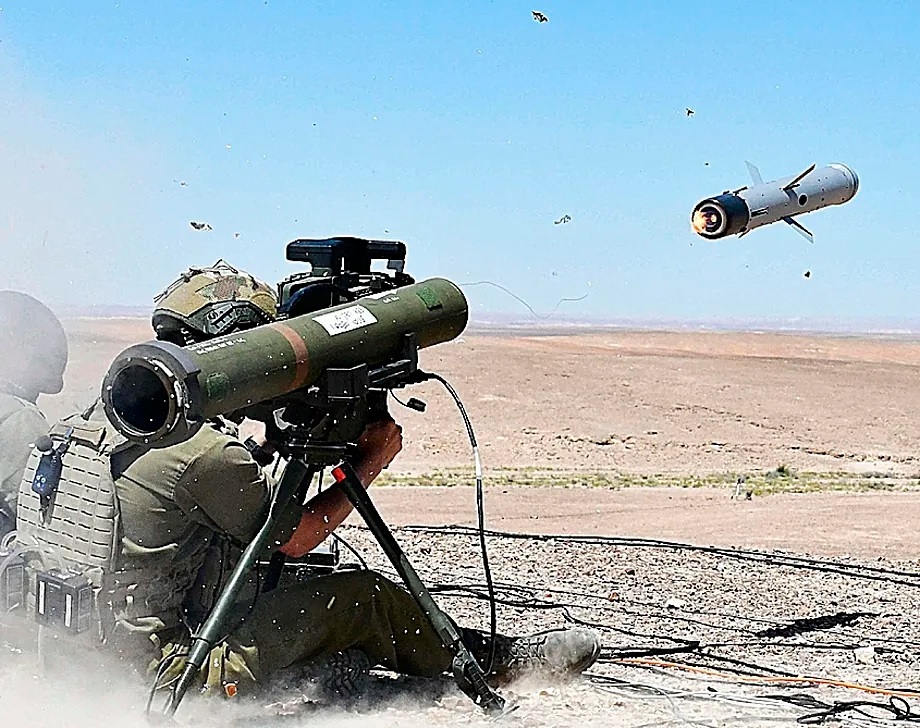The ultimatum issued this week by Defense regarding a total withdrawal from armament ties with Israel could have more serious consequences for the sector than the cancellation of the Civil Guard bullet contract. The Ministry has expressed its intention to cancel the purchase of 1,680 Spike LR2 anti-tank missiles and remove Israeli technology from the Silam rocket launcher vehicle, a project worth over 700 million euros.
These are two of the four major projects with Israeli technology that the Army has awarded. They add to the Aicox tactical radios, another 350 million euro program based on technology from the eastern state that has been blocked. In this case, the awardees, Aicox and Telefónica, have proposed increasing the percentage of assembly in Spain to resume the program, which is included in the industrial strategy presented by Pedro Sánchez to reach 2% of GDP in Defense spending this year, making its implementation urgent.
Regarding the Spike missiles and Silam, the cancellation or modification of the programs will significantly affect several Spanish companies. In the case of the missiles, although the awardee was Pap Tecnos, a subsidiary of the Israeli company Rafael in Spain, the 287 million euro contract was to be developed in a consortium that also included FMG (Granada Ammunition Factory), Tecnobit, and Escribano and Rheinmetall Expal, doubly affected by this government's turn, as they are also the awardees of Silam.
The paradox of the government's decision is that the most obvious options to replace these two programs involve the United States, another country with which diplomatic relations are strained and from which Europe wants to reduce its dependence for defense. In the case of Spike missiles, the most frequently used alternative in the Spanish environment is the Javelin missiles, manufactured by Lockheed Martin. The U.S. company has just partnered with Rheinmetall to manufacture missiles in Europe.
An European alternative would be to contract Akeron missiles, manufactured by the company MBDA, an entity created from the merger of the missile businesses of Airbus, Bae Systems, and Leonardo. The most paradoxical option, however, would be to contract EuroSpike, a Europeanized version of the missile that Defense wants to cancel, manufactured in Germany by the same Rheinmetall.
A similar situation occurs with Silam. Among the rocket launcher vehicles, there is the option of the Himars, world-famous for their impact in the Ukraine War, but they are of U.S. manufacture. For now, Defense is only saying that it is studying "technological alternatives," with the aim of finding another platform to serve as the basis for this new vehicle for the Spanish army.
The situation is once again contradictory, as the awarding of the contract to Escribano and Rheinmetall clearly stated that they were the "only technically capable company for the project's development from a technical standpoint" and until recently this technology was "irreplaceable." In this sense, it is likely that the contract reform will be accompanied by an extension of deadlines to give leeway to the companies, which are also on track to become one of the main job creators in Córdoba, a key province in a crucial region for socialist interests.
For now, there is one program with Israeli technology that has not been called into question. These are the 45 Eurofighter laser designation pods, awarded at the end of 2023 (during the Gaza conflict) for over 200 million euros to the company Rafael.
The pods are the elements that allow pilots to lock onto targets and fire laser-guided ammunition with maximum precision, greatly enhancing the effectiveness of combat aircraft, in which the Israeli company is a technological leader, having also collaborated with the Air Force on previous orders of these aircraft.
However, as this is a political decision, there is complete uncertainty in the sector regarding the future of the contract, and a cancellation could further delay the urgent modernization of the Armed Forces, as well as potentially lead to compensation for the affected companies.
